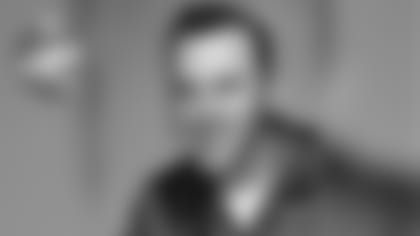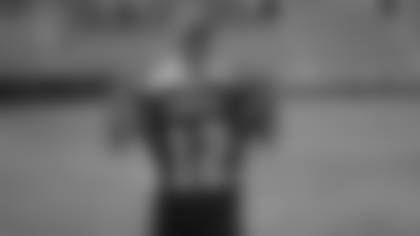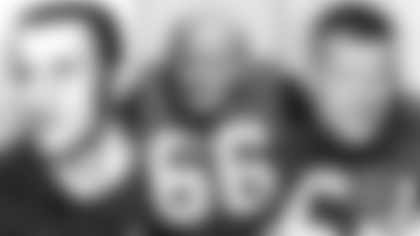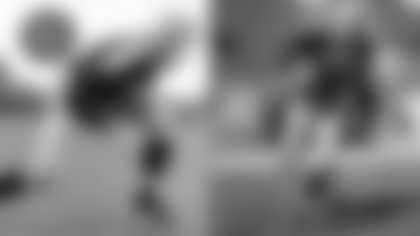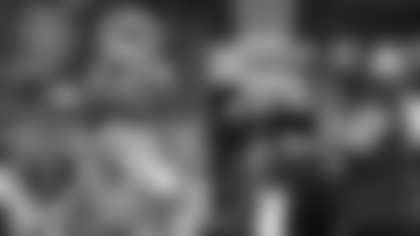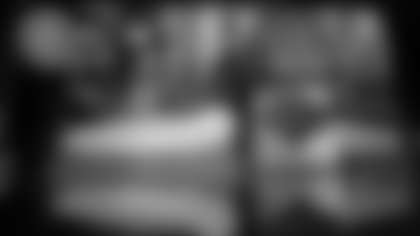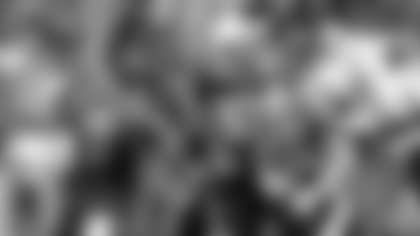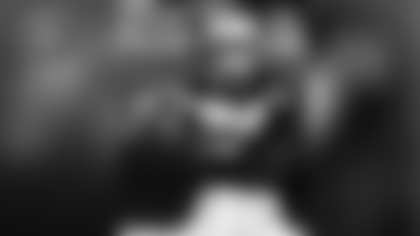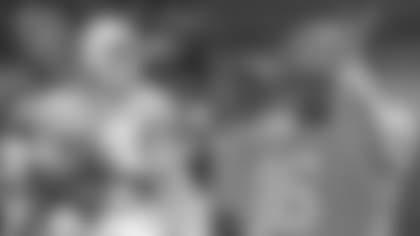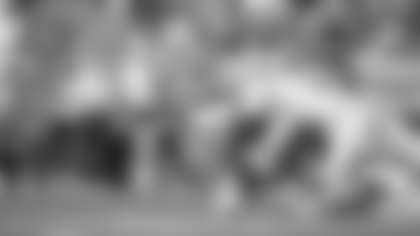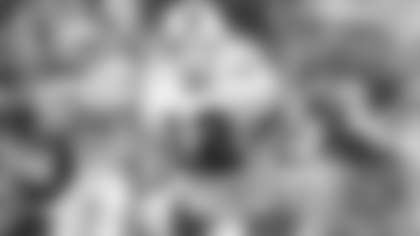Cliff Christl started gathering oral histories with former Packers and others associated with the team in1996 and will continue to gather them as Packers historian. Excerpts from those interviews will be periodically posted at www.packers.com
Norb Hecker was defensive backfield coach of the Packers from 1959-65. One of four assistants on Vince Lombardi's original staff, he was hired after spending the 1958 season as a player-coach with the Hamilton Tiger-Cats of the Canadian Football League. A sixth-round draft choice by the Los Angeles Rams in 1951, Hecker played through 1953 and then was traded to Washington. However, he opted to sign with Toronto of the CFL instead. After a season there, Hecker returned to the NFL and played with Washington from 1954-57. Hecker left Lombardi's staff when the expansion Atlanta Falcons hired him as their first head coach in 1966. Hecker compiled a 4-26-1 record before being fired three games into the 1968 season. Hecker then spent three seasons as an assistant with the New York Giants and seven with Stanford University, including the final two under Bill Walsh. When Walsh was named coach of the San Francisco 49ers, Hecker went with him and remained on his staff through 1986.
On how he got the job as defensive backfield coach at age 31: "Jack Vainisi called me and said Lombardi wanted to talk to me about coming to Green Bay. I didn't know Vince from Adam. I went to Green Bay and talked to Lombardi, but spent more time with (Phil) Bengtson. Lombardi told me he was going to Jack Mara's funeral (in New York) and that he would call me the next week. Lombardi called me the next day and told me I was hired. I heard later that Buddy Parker (former NFL head coach) had recommended me."
On the move to Green Bay: "I stayed at the YMCA with Phil Bengtson. We went to work right away. Lombardi's office was downstairs in that old downtown office and the assistant coaches were all upstairs. We worked long hours. My wife came later. We drove to Green Bay from Ohio with five children. We had a station wagon we packed up and started driving. We drove across Ohio through Chicago and my wife Barbara said, 'Where are you taking us?' I said, 'We're going to Green Bay.' She said, 'Where is Green Bay?'"
On working for Bengtson: "He ran the defense and Lombardi would only occasionally stop in meetings to make a recommendation. (Bengtson) coached a long time and he knew the teams in the league very well. Teams were pretty basic in those days. Defenses were basic. There wasn't a lot of blitzing. There wasn't a lot of sophisticated defenses."
On veteran safety and future Pro Football Hall of Famer Emlen Tunnell, who was acquired by Lombardi from the New York Giants before the 1959 season: "Vince wanted him to stabilize the secondary. He helped the young guys. He was like a coach."
On veteran safety and recently elected Pro Football Hall of Famer Bobby Dillon, who was coaxed out of retirement by Lombardi and then lost his starting job late in the season: "He was sort of at the end of his career."
On safety John Symank, who replaced Dillon in the starting lineup late in the year: "He was hard-nosed. He didn't have great speed. He was a good tackler. I hired Symank as secondary coach in Atlanta."
On future Pro Football Hall of Fame cornerback Herb Adderley, the Packers' No. 1 draft pick in 1961: "Vince came to me one day and said, 'I don't think Herb can play wide receiver on this team.' He said, 'Make a defensive back out of him.' He had tremendous speed and great recovery speed. He was a little like Night Train Lane that way. He'd invite the quarterback to throw it out there like 'Train' did and then – Whew! – break on the ball and intercept it. He was a tough tackler, too. If I had to draw up a defensive back and clone one, I'd draw up Herb Adderley. He had great anticipation."
On Hank Gremminger, who lost his starting cornerback job to Bobby Freeman in 1959, reclaimed it down the stretch and then moved to safety in 1962 when Adderley took over as the starting left cornerback: "He was a smart player. He was a tough guy. He was a good safety."
On starting right cornerback Jesse Whittenton: "He had good speed. He was near the twilight of his career. But he was a good football player, a good tackler."
On Whittenton, at age 31 and only a year after making the Pro Bowl, mentioning retirement to Lombardi and being told it wasn't a bad idea: "(Lombardi) wasn't afraid to make changes. Bill Walsh was like that, too. A guy got near the end of his career, he'd say, 'Hey, your done,' and bring in a young kid and say, 'You're the starter now.'"
On why it took Ray Nitschke almost two seasons or more before Lombardi made him the starting middle linebacker, replacing Tom Bettis: "(Nitschke) was a little screwed up in his mind. He walked out of camp numerous times. Vince would go to the airport and pull him off an airplane. He was a wild-(bleep) guy. Vince threw him off the team a couple times. We'd be in a bar some place having a sandwich – Phil and I and Vince – Nitschke would be in there at the bar, which he wasn't allowed to do, and Vince would throw him off the team. Then we'd beg him to bring him back. That happened at least twice before (Nitschke) became a starter. It happened one time in LA when we had to beat the Rams in the early '60s and Nitschke was at a bar when Lombardi was there. (Nitschke) was a hot-headed kind of guy."
On defensive end Bill Quinlan, another member of the defense who had a reputation for being wild off the field: "A couple times, Quinlan left home to get a loaf of bread and was gone for two weeks. That's how he was. He lived in Massachusetts somewhere. He'd tell his wife he was going to get a loaf of bread and go visit his cronies on the West Coast. There were a lot of characters on those teams."
On Lionel Aldridge, who replaced Quinlan in 1963 after Lombardi had tired of Quinlan's act: "It took him a while before he played at Quinlan's level. But he (became) a pretty damn good player. He could run, too."
On Bill Forester, starting right linebacker through 1963: "He was the old pro, the leader and the captain and that helps. Vince liked those kind of guys. He was never a problem. He was a stable linebacker. He couldn't cover very well. He didn't have any kind of speed. But he was good against the run. He could plug those holes inside."
On future Pro Football Hall of Fame left linebacker Dave Robinson: "I don't know if Robby was fast enough for today's game, but he had good speed. He was smart, too. Very bright."
On Lee Roy Caffey, who replaced Forester at right linebacker: "Lee Roy could run. But he and Vince never got along. They clashed an awful lot. Whether he was arrogant with Vince or what, they rubbed each other the wrong way. But he was a good player. He could run like heck. He wasn't a real smart player."
On working for Lombardi: "He never worked his players real hard during the season; the same with the coaches. We lived so close to the stadium, we'd go home for dinner with our families during the season. We'd leave the stadium about 5 o'clock and he'd say, 'I want you back at 7. Go home and have dinner with your families and be with your kids,' which was terrific. Then exactly at 10 o'clock at night, he'd look at his watch and say, 'Get out of here. Good night.' We worked Monday, Tuesday and Wednesday nights. On Thursday, we'd work a longer afternoon and not at all at night."
On Lombardi's 5 o'clock social hour during training camp and on Saturdays on road trips: "We didn't talk football. Vince loved to talk or watch golf because (Arnold) Palmer and (Jack) Nicklaus were in their prime, and he enjoyed watching them and the game. At 6 o'clock, it would end promptly."
Hecker died in 2004 at age 76. The interview with him was conducted in 2002.



